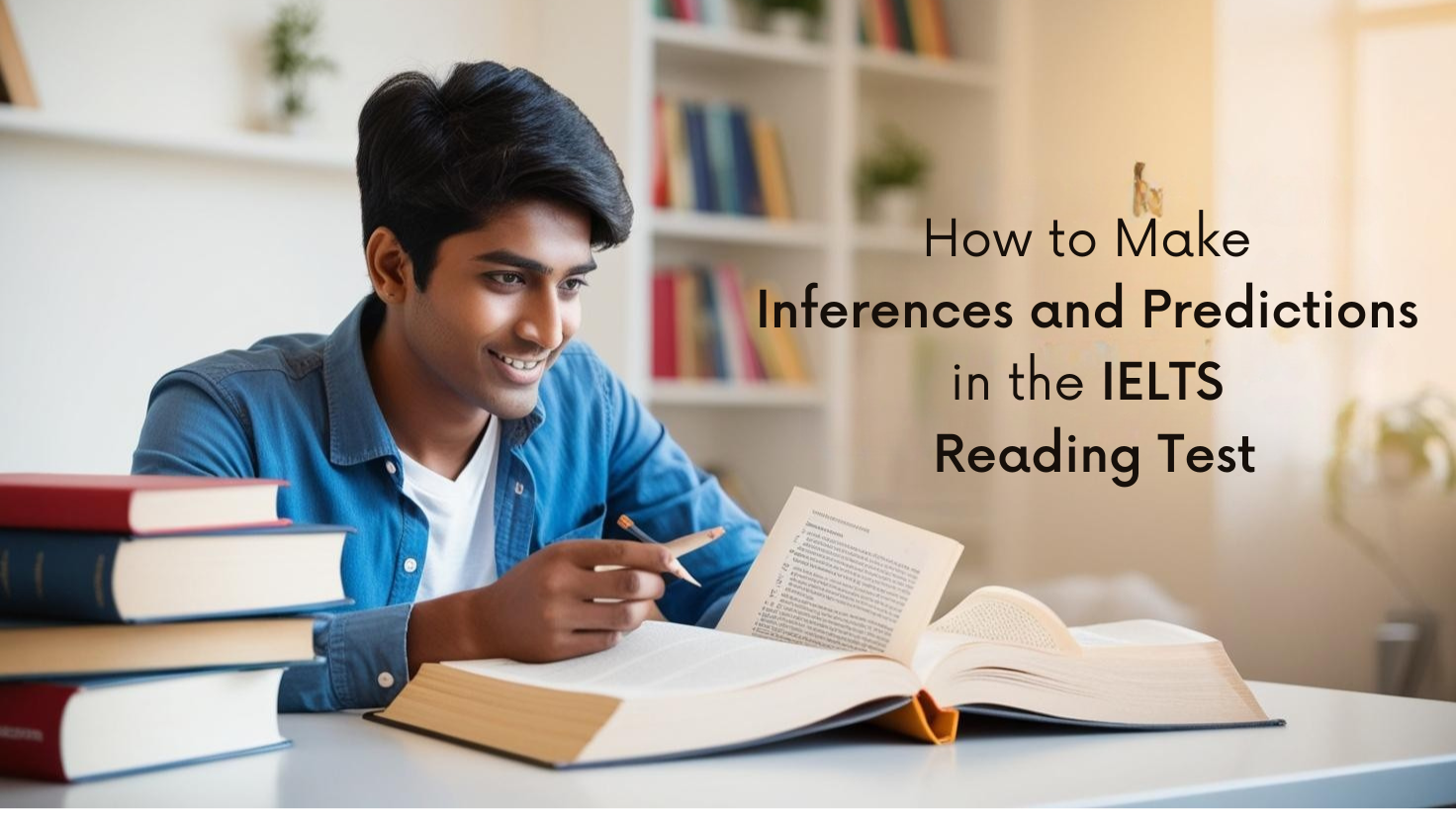Introduction
The IELTS Reading Test assesses your ability to understand and interpret written information in an academic context. One crucial skill for success in this section is the ability to make inferences and predictions. Many test-takers focus only on direct information in the text, but reading between the lines and anticipating what comes next can significantly improve your comprehension and accuracy.
In this blog, we will explore practical strategies to enhance your inference and prediction skills. Mastering these techniques will help you understand texts more effectively and boost your IELTS Reading score.
Understanding Inferences and Predictions
Before diving into strategies, let’s clarify the difference between inferences and predictions in the IELTS Reading Test.
What Are Inferences?
Inference means drawing logical conclusions from the given information. The text may not explicitly state a fact, but using clues, you can determine the intended meaning. For example, if a passage describes someone “shivering and wrapping their coat tightly,” you can infer that the weather is cold, even if it is not directly mentioned.
What Are Predictions?
Prediction involves anticipating what comes next based on the context. By analyzing the structure and flow of a passage, you can often guess what kind of information will follow. For instance, if a paragraph introduces a problem, the next section might discuss possible solutions.
Both skills require critical thinking and an active reading approach to identify subtle hints in the passage.
Effective Strategies to Improve Inferences and Predictions
1. Use Skimming and Scanning Techniques
Instead of reading every word, focus on skimming for the general idea and scanning for specific keywords. This approach allows you to identify key points quickly, making it easier to infer missing details and anticipate what follows.
2. Pay Attention to Context Clues
Words surrounding an unfamiliar term often provide valuable hints about its meaning. Look for synonyms, antonyms, and explanations within the passage. This technique not only improves vocabulary comprehension but also strengthens your inference skills.
3. Identify the Author’s Tone and Purpose
Understanding why an author wrote a text helps you predict the type of information presented. If a passage is written in a persuasive tone, it will likely include arguments and counterarguments. On the other hand, a neutral academic article may focus on presenting facts and research findings.
4. Recognize Patterns in the Text
Many IELTS Reading passages follow predictable structures, such as cause and effect, problem and solution, or comparison and contrast. Identifying these patterns allows you to anticipate what comes next, making it easier to answer questions accurately.
5. Relate Information to Your Existing Knowledge
Connecting the passage to your prior knowledge helps you make logical inferences. If a passage discusses climate change and you already know its impact on weather patterns, you can predict that the next section might discuss solutions to environmental issues.
6. Look for Transition Words
Words like “therefore,” “however,” “for instance,” and “as a result” indicate relationships between ideas. These signal words help you understand the logical flow of information and anticipate upcoming details.
7. Practice Summarizing and Paraphrasing
After reading a paragraph, try summarizing its main idea in your own words. This exercise forces you to think critically about the text, improving both inference and prediction skills.
Example Applications of Inference and Prediction
Example 1: Making an Inference
Passage: The restaurant was silent. Plates remained untouched, and the waiter stood nervously near the counter.
Inference: The customers may have received bad service or unappetizing food, causing them to leave without eating.
Example 2: Making a Prediction
Passage: Scientists have discovered a new treatment that significantly reduces symptoms of a rare disease.
Prediction: The following paragraph might discuss how the treatment works, its effectiveness, or possible side effects.
How Kandor Can Help You Succeed in the IELTS
Preparing for the IELTS Reading Test requires smart strategies and reliable resources. Kandor, an innovative study abroad platform, simplifies this journey. With its AI-powered tools and personalized guidance, Kandor helps students improve their IELTS skills, manage study plans, and stay updated on test strategies. Whether you’re struggling with reading comprehension or time management, Kandor offers tailored support to help you achieve your target score and move one step closer to your dream university.
Conclusion
Excelling in the IELTS Reading Test requires more than just recognizing facts—it demands strong inference and prediction skills. By applying skimming and scanning techniques, using context clues, recognizing patterns, and summarizing key ideas, you can improve both accuracy and efficiency.
Practice these strategies regularly, and you’ll gain the confidence needed to tackle any IELTS Reading passage. With dedication and the right approach, a high band score is within your reach.
Start practicing today, and good luck with your IELTS preparation!




















